Captive Market: Commercial Bail Bonds in America
Corporate wealth extraction in the American commercial bail bonds industry.
Riley Evans
August 30, 2022
When most Americans think of bail bonds, they likely conjure a tacky late-night television ad, a leather jacket-clad bondsman from a crime flick, or the neon-lit storefronts near their local courthouse. But behind the neon signs lurks a powerful network of corporate actors who have built a two-billion-dollar industry on the backs of poor and Black and Brown Americans.
The story of the commercial bail bonds industry is a story of corporate greed and human suffering. It’s a story of a saloon in San Francisco and a multi-national insurer in Tokyo. It’s a story of campaign donations, complicit judges and captured regulators. It’s a story of families extorted and locked in debt.
The story of the commercial bail bonds industry is a story of corporate greed and human suffering. It’s a story of a saloon in San Francisco and a multi-national insurer in Tokyo. It’s a story of campaign donations, complicit judges and captured regulators. It’s a story of families extorted and locked in debt.
Adrian was nineteen when he was arrested in a far-flung industrial area of Brooklyn. The police claimed he was caught on camera trespassing in a construction site and was found a few blocks away with a group of friends loading tools into the back of car, where police also found enough cocaine that the prosecutor accused him of intent to sell. He admitted to his public defender that he hopped the fence to the construction site, but insisted he wasn’t involved in any drug dealing or burglary. At Adrian’s arraignment, the public defender asked that he be released, assuring the judge that Adrian had every reason to show up to court and get the charge resolved quickly. But the judge noted that Adrian had missed court appearances when he was previously arrested as a juvenile and set $15,000 bail.
If Adrian was unable to pay bail, he would be sent to the notorious Rikers Island jail complex, where violence is endemic and medical care scarce. Adrian had asthma, and while he thought he was tough, his mother, Vanessa, knew he was just a kid, still lanky and awkward. Vanessa was terrified. Knowing she couldn’t afford to pay $15,000 in full to the court, she hurried across the street to a line of neon-lit storefronts offering bail bonds.
In its most basic form, a bail bond is a contract. When an individual is unable to pay the full bail, they can instead post a bail bond cosigned by a bondsman. The bond serves as a guarantee that the person will return to court. In effect, the bondsman promises to either bring the person to court or pay the bail in-full should the accused person skip town. In exchange, bond companies charge a non-refundable “premium,” typically ten percent of the bail amount. Vanessa would have to pay a $1500 premium on Adrian’s $15,000 bail. The bondsman pockets this premium, regardless of whether the accused individual appears voluntarily at all their court dates, and even when they are ultimately found innocent.
As she peered in the storefront windows of various bail bond purveyors, Vanessa was ready to do whatever it took to get Adrian out. And for good reason. When people are held on bail, the consequences can be devastating both for the individual’s criminal case and for their life.
A 2016 study found that being jailed before trial significantly increases the likelihood of pleading guilty, being convicted, and receiving a longer prison sentence. This shouldn’t come as any surprise: incarceration makes it difficult to participate in one’s own defense, contact potential witnesses, or gather evidence. And given the collateral consequences of detention, including losing a job or custody of children, prosecutors can more easily leverage guilty pleas, regardless of actual guilt.

New York’s Riker’s Island jail complex, seen from above, by Tim Rodenberg, marked with CC-BY-NC-2.0.
Some even plead to a prison sentence just to escape the chaos and uncertainty of county jail. A survivor of Rikers Island revealed to his mental health clinician how the pressure of pre-trial detention pushed him to plead guilty although he insisted he was innocent: “I could get through all this Rikers bullshit if I knew I had a good shot at trial. I can’t take it. I’m taking the cop-out. I have to get out of here. [The guards] had a search last night and they beat somebody up bad. Everyone says upstate [prison] is different. You work, they have programs . . . but bottom line, I’ll know exactly when I’m getting out.”
Some people held on bail never make it out. In Texas, at least 1,100 people died in county jails between 2010 and 2021. Some died as a result of medical neglect, others at the hands of jail staff or other incarcerated people who brutalized them. Too many took their own lives in the isolation of a tiny cell.
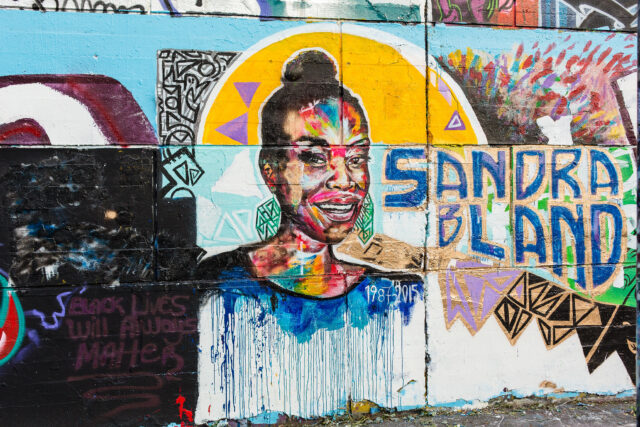
A mural of Sandra Bland, by Robert Fairchild, marked with CC-BY-NC-2.0.
Among them was Sandra Bland, who was held in the Waller County jail on $5000 bail, charged with assaulting an officer—allegations contradicted by the widely-viewed video of her arrest. Bland needed $515 for the bail bond premium and fees. She didn’t have it, and when she couldn’t reach family or friends who might help, she broke down sobbing. After spending a night alone in a cell, jail officers refused her request to make additional phone calls and, according to jail investigators, she was found dead about two hours later (doubts linger about whether her reported suicide was the true cause of death).
As Vanessa tried to find the bondsman who looked the most “trustworthy,” the media stories she had heard about people like Sandra dying in custody ran through her mind. She worried about Adrian’s asthma—he had told her in court that the police had confiscated his inhaler. What would happen if Adrian had an asthma attack while in jail?
Adrian’s story is not the story of any one individual. It is drawn from the experiences of countless families I worked with when I ran the Jail Services Division at Brooklyn Defender Services, a public defender agency. Families like Adrian’s seeking help from a commercial bail bondsman do so under unfathomable pressure—for many, it is the worst day of their lives. Commercial bail bondsmen exploit these circumstances, presenting contracts riddled with exploitative terms.
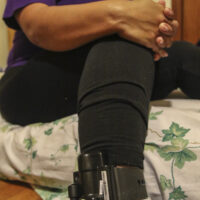

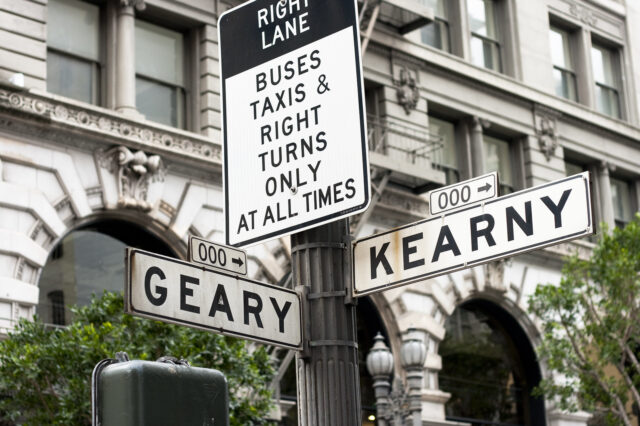
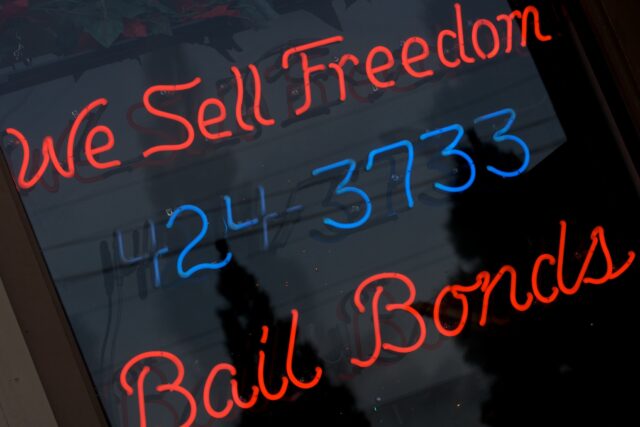
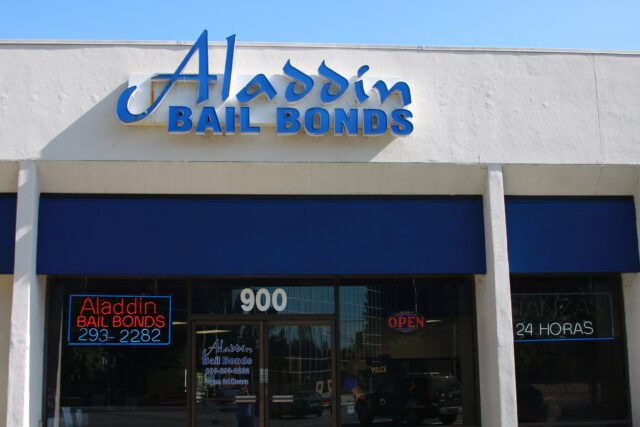


![[F]law School Episode 8: Selling Harvard Law Students](https://theflaw.org/wp-content/uploads/2024/09/Screenshot-2024-09-08-at-9.59.54 AM-640x427.png)





